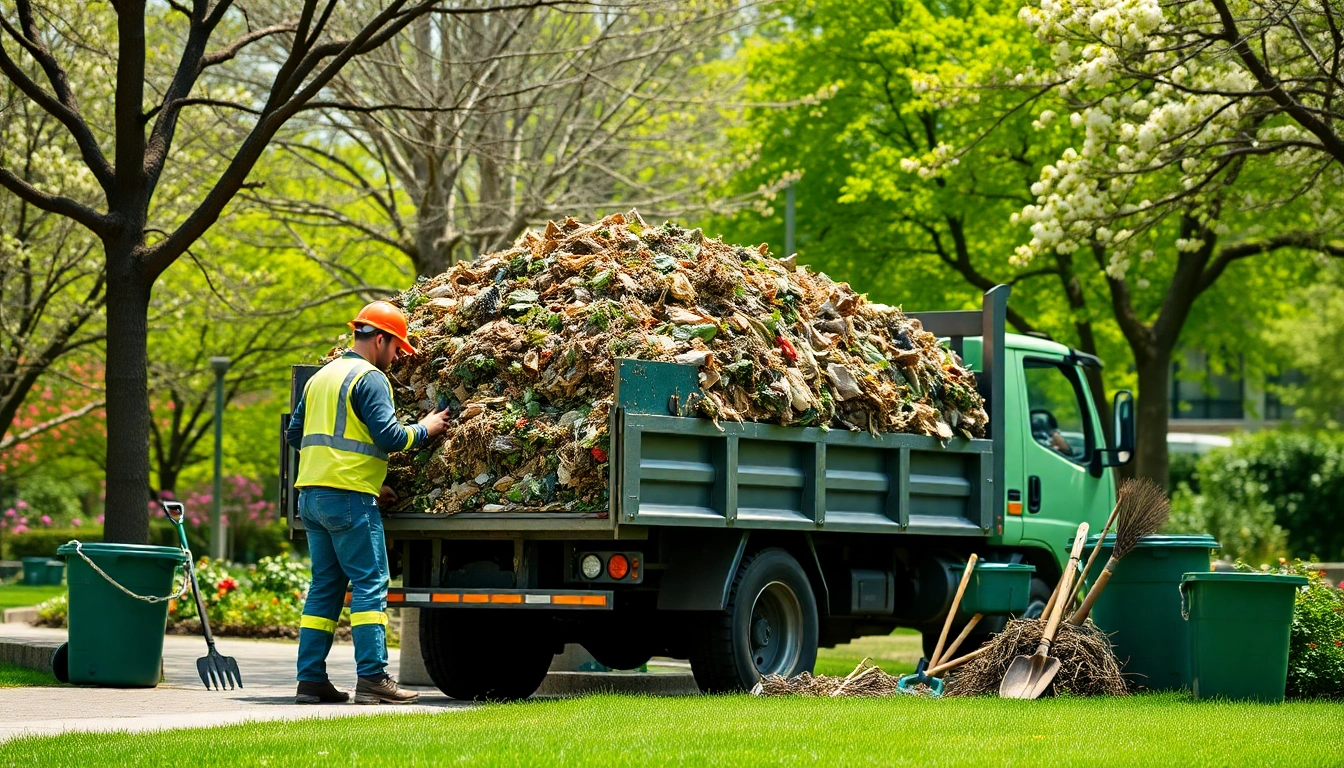Essential Garden Maintenance Service Tips for a Lush and Inviting Outdoor Space
Understanding the Importance of Garden Maintenance Services
Maintaining a vibrant and lush garden goes beyond mere aesthetics; it encompasses the overall health of your plants, soil, and the ecosystem within your outdoor space. Engaging a professional garden maintenance service can transform your green area into a sanctuary while saving you time and effort. This exploration dives deep into what garden maintenance services entail, their myriad benefits, and common misconceptions that surround them.
What is a Garden Maintenance Service?
A garden maintenance service refers to a professional offering that covers various aspects of garden care, including but not limited to lawn care, planting, pruning, and pest management. These services are tailored to maintain the aesthetic appeal and health of your garden, whether residential or commercial. Professionals in this field possess the expertise and tools necessary to adequately assess and address the needs of different plants, ensuring they thrive throughout the seasons.
Benefits of Regular Garden Care
Regular garden maintenance yields several key benefits:
- Enhanced Aesthetics: A well-kept garden can dramatically improve the appearance of your property.
- Increased Property Value: Beautiful landscaping is a strategic investment that can elevate property market value.
- Healthier Plants: Regular attention ensures that plants receive proper nutrients, water, and treatment for diseases.
- Weed and Pest Control: Consistent maintenance helps to keep weeds and pests at bay, creating a healthier environment for your plants.
- Time-Saving: Hiring professionals allows homeowners to save time and focus on other essential endeavors while maintaining a beautiful garden.
Common Misconceptions about Garden Maintenance
Despite the clear benefits, several misconceptions about garden maintenance services persist, including:
- It’s Only for the Wealthy: Many believe that hiring a service is a luxury. However, various service plans can fit different budgets, making them accessible to most homeowners.
- It’s Just Mowing the Lawn: While lawn care is a significant component, thorough garden maintenance covers a wide range of tasks that ensure overall garden health.
- You Can’t Do It Yourself: Many believe professional help is the only way to maintain a garden, but with the right knowledge and resources, DIY maintenance is viable.
Key Services Offered in Garden Maintenance
Understanding the array of services provided by garden maintenance professionals is critical for homeowners looking to maximize their garden’s potential. Here are some key services offered:
Lawn Care and Turf Management
Lawn care is one of the most visible aspects of garden maintenance. Professionals ensure healthy growth through:
- Soil Testing: Testing helps determine pH levels and nutrient content, allowing for tailored treatment plans.
- Fertilization: Applying the right fertilizers at appropriate times maximizes growth and health.
- Pest Control: Preventive and curative measures help manage insect populations, protecting your lawn.
- Weed Management: Regular mowing, along with herbicide applications, keeps those pesky weeds away.
Plant Pruning and Trimming Techniques
Proper pruning is essential to maintain plant health and aesthetics. Garden maintenance services typically offer:
- Seasonal Pruning: Certain plants benefit from being pruned at specific times to encourage growth.
- Trimming for Shape: Regular trimming keeps plants looking neat while promoting air circulation.
- Removal of Dead or Diseased Branches: This prevents the spread of diseases and encourages healthier growth.
Seasonal Planting and Mulching Strategies
Seasonal planting ensures that gardens remain vibrant year-round. Professionals help clients with:
- Planning Plant Selections: Selecting the right plants for different seasons improves garden resilience and appeal.
- Mulching: This practice retains moisture, suppresses weeds, and maintains soil temperature, making it a critical component of garden care.
- Composting: Professional services often include composting to enhance soil fertility naturally.
Choosing the Right Garden Maintenance Service
Selecting a garden maintenance service requires careful consideration to ensure you receive quality care tailored to your needs. Here are some critical factors to assess:
Factors to Consider When Hiring Professionals
When looking for a service provider, consider:
- Experience and Expertise: Look for services with a proven track record, relevant qualifications, and knowledgeable staff.
- Reviews and Testimonials: Customer feedback often provides insight into service quality and reliability.
- Insurance and Certifications: Ensure the service is insured and certified to operate legally and safely in your area.
Questions to Ask Your Garden Maintenance Provider
Before settling on a gardening service provider, here are critical questions to ask:
- What services do you provide, and can they be customized?
- How do you approach pest control, and what products do you use?
- What are your scheduling options for regular maintenance?
- Can you provide references or case studies of previous work?
Evaluating Service Packages and Pricing
Price isn’t everything, but it’s essential to understand what you’re paying for. Look for:
- Detailed Estimates: Comprehensive price breakdowns help avoid hidden charges.
- Package Options: Some companies offer bundled services at discounted rates, which can be beneficial for ongoing maintenance.
- Comparison with Competitors: Don’t hesitate to compare prices and services with other providers to ensure you get a fair deal.
DIY vs. Professional Garden Maintenance
Homeowners often face a choice between maintaining their gardens themselves or hiring professionals. Each option has its merits and considerations:
When to DIY Your Garden Care?
DIY gardening can be enjoyable and fulfilling, particularly if you have:
- Time and Interest: Enthusiastic gardeners often enjoy the hands-on approach.
- Basic Gardening Knowledge: If equipped with knowledge of local plants and gardening techniques, DIY can work well.
- A Smaller Garden: For small spaces, hands-on maintenance could be more manageable.
Cost-Benefit Analysis of Professional Services
Before dismissing professional services, consider the cost versus benefits:
- Expertise: Professionals bring a wealth of knowledge in plant care, resulting in healthier plants and gardens.
- Time Savings: Hiring out ensures your free time is preserved for leisure activities rather than chores.
- Avoiding Mistakes: Garden maintenance mistakes can lead to costly repairs or replacements.
Tools and Resources for Effective DIY Maintenance
If you choose the DIY route, ensure you are equipped with the right tools and knowledge:
- Basic Gardening Tools: Invest in good-quality pruners, shovels, hoes, and a sturdy wheelbarrow.
- Gardening Guides and Workshops: Many community centers offer classes to enhance your gardening skills.
- Online Resources: Websites, forums, and gardening blogs provide tips, advice, and plans for various garden types.
Measuring the Success of Your Garden Maintenance Efforts
After engaging in garden maintenance, it’s essential to measure success to understand what’s working and adjust strategies accordingly:
Key Performance Indicators for Garden Health
How do you know if your garden is thriving? Consider measuring:
- Plant Growth Rates: Monitor the growth speed of your plants to gauge health.
- Soil Health: Regular soil testing for pH and nutrient levels can inform your maintenance practices.
- Weed and Pest Levels: Track the prevalence of unwanted plants and pests to evaluate maintenance effectiveness.
Feedback and Adjustments for Ongoing Services
Regular feedback from a maintenance provider can guide future care:
- Regular Reports: Ask for performance reports that summarize the state of your garden post-service.
- Adjusting Care Plans: Successful maintenance often involves tweaking care plans based on seasons and plant health.
Creating a Seasonal Maintenance Schedule
Establishing a seasonal schedule can optimize the efficiency of your garden maintenance efforts. Key considerations include:
- Timing for Planting: Allocate specific months for planting and care depending on local climate.
- Maintenance Tasks: Schedule regular maintenance to ensure tasks like watering, fertilization, and pest management are regularly executed.
- Seasonal Assessments: Conduct seasonal evaluations to determine needed adjustments in plants and care activities.












Post Comment